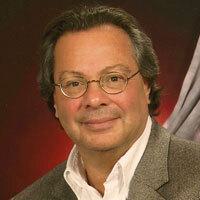
Stephen Marini
Elisabeth Luce Moore Professor of Christian Studies & Professor of Religious Studies
Academic historian and public interpreter of religion in America during the Colonial, Revolutionary, and Early National periods.
For the past decade, I have concentrated my research and writing on early American sacred music and poetry, culminating in my fifth scholarly book, The Cashaway Psalmody: Transatlantic Religion and Music in Colonial Carolina, published in January 2020. It is a detailed study of a 1770 manuscript tunebook I discovered in South Carolina that contains the earliest surviving sacred music from the colonial Lower South, many tunes of which had never appeared before in America. My research on The Cashaway Psalmody opened a vast and unexpected perspective on the creation of colonial culture through transatlantic and inter-colonial lives, religious and ethnic communities, and musical and literary transmission between Carolina and Newcastle-upon-Tyne in England. I also published two related book chapters in 2020, one on the Cashaway manuscript in a UK collection called Music in the North East of England, 1500-1800, and the other on the great early Evangelical hymnwriter Isaac Watts in the US essay anthology Protestant Aesthetics and the Arts. During my sabbatical leave in 2020-21, I have begun research for a major book project, provisionally titled American Reformation: Religion in Revolutionary Society.
I began my scholarly work with Radical Sects of Revolutionary New England (1982), my revised Harvard dissertation on the Shakers, Universalists, and Freewill Baptists. While continuing to publish on Revolutionary religion, I turned to American sacred music with Sacred Song in America: Religion, Music, and Public Culture (2003). I continued with that interest from 2010 to 2013 as Contributing Editor for Sacred Music for The New Grove Dictionary of American Music, 2nd edition. Along the way I have received seven major research fellowships from the National Endowment for the Humanities, the American Council of Learned Societies, the Lilly Endowment, and the Earhart Foundation. In addition, I taught regularly from 1978 to 2005 in New England graduate theological faculties including Harvard Divinity School, Yale Divinity School/Institute of Sacred Music, Weston Jesuit Theological Seminary, and Andover Newton Theological Seminary.
As a scholar and teacher of religion in American culture, I have designed my Wellesley courses in that field to engage with a variety of cognate disciplines—Religion in America (History), Religious Themes in American Literature (English), and my seminar in Religion, Law, and Politics (American Studies, Political Science). As holder of the Elisabeth Luce Moore Chair in Christian Studies, I offer courses in Christian thought from the Reformation to the present and Christian ritual. My third curricular area is ethics, for which I teach two general courses, Ethics, and Radical Individualism and the Common Good, as well as a seminar on Religion and Violence. I also teach our basic course in Theories of Religion and our departmental capstone seminar for seniors. I am a great believer in dialogical teaching and collective inquiry in the classroom. Discussion constitutes half to virtually all of my class sessions, depending on the course subject.
I have been much involved with three professional organizations, including the American Society of Church History, on whose council and program committee I have served, and the American Antiquarian Society in Worcester, where I have received three Senior Research Fellowships and taught its annual American Studies Seminar for Worcester-area colleges. I am especially close to the Massachusetts Historical Society, as a founding member of its Boston-area Seminar in Early American History, former chair of its Small Fellowships Committee, and frequent participant in its conferences and public events.
As should be clear by now, sacred music is one of my greatest personal passions, and I pursue it as a performer as well as a scholar. In 1976, my first year at the College, I founded a campus singing group devoted to learning Early American sacred music, especially psalms and hymns. Forty-five years later I continue to lead it as Norumbega Harmony, a community of singers of international reputation that has performed more than one hundred twenty-five concerts at New England colleges, libraries, and historical societies, released three recordings, and published a collection of early New England psalmody researched and produced entirely by its own members.
Education
- B.A., Dickinson College
- Ph.D., Harvard University